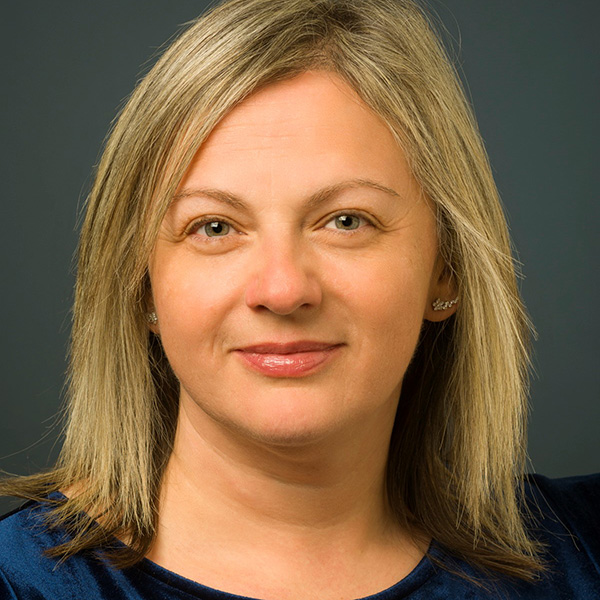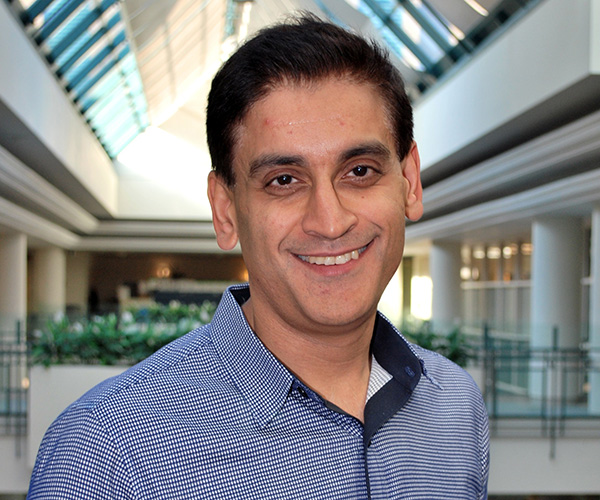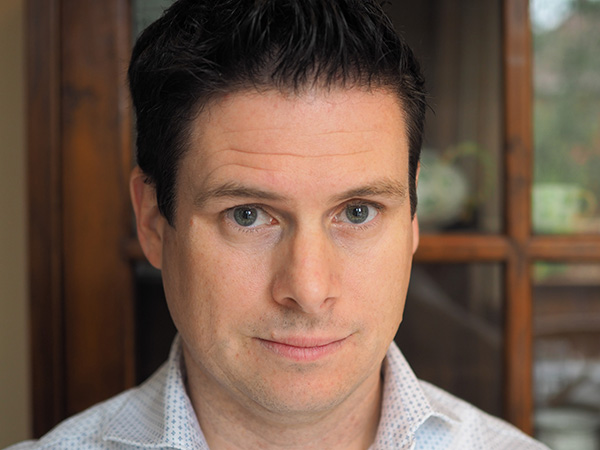Expert insights: Meet 3 CCO researchers working to improve healthcare
Feb 5, 2019
How can we improve cancer screening participation rates? What can we learn about cancer at a neighbourhood level? And how can we ensure patient care is person-centred – and delivered equitably across Ontario?
CCO researchers are asking these important questions, among many others, as we continually seek to improve healthcare for patients and deliver key information for healthcare providers and system planners. We conduct research that addresses all stages of care and that will improve population health, as well as quality and value of care for Ontarians.
Here are a few stories from CCO researchers and how their work is leading to meaningful improvements in care and the health system:
Dr. Rachel Kupets: Increasing cancer screening participation

With her research, gynecologic oncologist Dr. Rachel Kupets wants to make sure Ontario women get tested for cervical cancer – and never have to step foot in her office.
"When I see women coming in for radical treatment when cervical cancer has already developed, or young women dying from the disease, it’s heartbreaking,” says Kupets, the scientific lead for the Ontario Cervical Screening Program. “Often, their cervical cancer could have been prevented with a simple test, and procedure when they were pre-cancerous. It would have been life changing.”
Much of her research has focused on patterns and quality of care in Ontario in cervical cancer screening. Her studies have analyzed the impact correspondence has on participation, the role of primary care providers, and ways of ensuring women maintain screening.
Kupets has also studied the linkages between cervical and breast cancer screening, evaluating behaviours and attitudes among women aged 52 to 69. A recent study found that women aged 67 to 69 were less likely to be overdue for a mammogram – but more likely to be overdue for Pap tests – compared with women aged 52 to 54.
Findings also showed that a greater proportion of women with a female primary care provider were up-to-date for both breast and cervical screening, compared to those women who had a male primary care provider.
These results have, in turn, provided a basis for consideration to potentially combine the cervical screening model within the Ontario Breast Screening Program, so women coming in for a mammogram could be offered cervical cancer screening at the same location.
“Research helps to evaluate our provincial cancer screening programs so that we can recognize if our initiatives are working, as well as identify gaps and opportunities for improvement,” says Kupets.
Rachel Kupets, MSc M.D. FRCSC, is a gynecologic oncologist at Sunnybrook Health Science Centre in Toronto with an academic appointment at the University of Toronto. She is also the chair of the scientific committee for the section of Obstetrics and Gynecology at the Ontario Medical association.
Dr. Simron Singh: Making connections

Dr. Simron Singh has always been interested in connecting with people. It's one reason why he decided to specialize in oncology, switching from his initial choice of psychiatry during his time as a medical student.
“Oncology appealed to me because, like psychiatry, you get to know your patients very well and be part of their lives,” he says.
Singh is a medical oncologist with Sunnybrook’s Odette Cancer Centre in Toronto. He is also the clinical lead for Cancer Care Ontario’s Person-Centred Care Program, a role in which he is helping to ensure people can connect with the cancer care system in a meaningful way.
Person-centred care is an approach that considers patients’ needs, wants and preferences, in both their own care and in the design, delivery and evaluation of healthcare services.
Singh’s work with CCO focuses on improving and measuring the patient experience and enabling widespread patient engagement in cancer care across the province.
“There is amazing work being done to improve the patient experience in Ontario. We are leaders in this area around the world,” he says. As an example, he points to Cancer Care Ontario’s Person-Centred Care Guideline, one of the first such sets of guidance in Canada.
Your Voice Matters is also groundbreaking. Unlike traditional retrospective surveys that ask patients and their families to think back on their experiences, this electronic survey captures the information in close to real time and is linkable to the patients’ health data. With data from the survey, the team at CCO is researching how patients’ experiences vary across the province, providing insights about health equity.
“When patients are active participants in their care, they tend to have greater satisfaction with their experiences and improved health outcomes,” Singh says. “Making the cancer system more person-centred is one of the most important ways we can improve system quality.”
Simron Singh, M.D., leads the multi-disciplinary specialized neuroendocrine clinic at Sunnybrook’s Odette Cancer Centre in Toronto. He is also an affiliate scientist in the Odette Cancer Research Program, adjunct scientist with IC/ES, and associate professor at the University of Toronto.
Todd Norwood: Targeting insights

Ever wonder how the area you live in might influence your health? This question, about the specific cancer burden in our neighbourhoods and communities, lies at the heart of Todd Norwood's research.
Working within Cancer Care Ontario’s Surveillance and Cancer Registry department, Norwood was a key contributor to the 2017 Cancer Risk Factors Atlas of Ontario. This unique atlas shows how risk factors related to cancer and other chronic diseases are distributed in local areas throughout the province. The information can help public health planners create health promotion programs that target local issues.
The atlas can also help researchers gain important insights about factors that influence a neighbourhood’s cancer risk, as highlighted in the September 2018 issue of Ontario Cancer Facts, which looked at tobacco smoking in Hamilton.
“My team’s project focused on the downtown core of Hamilton because we knew it has a high prevalence of tobacco smoking,” he explains. The research team combined data from the atlas with information from other sources, such as the Ontario Marginalization Index.
Their analysis found that neighbourhoods with high proportions of people with low income or without high school diplomas, or high proportions of people living alone or moving frequently also have higher proportions of people who currently smoke.
“This type of research helps us understand the initial factors that may influence smoking,” he says. It also highlights opportunities to develop specific programs that address social determinants of health, such as a lack of material resources (e.g., inadequate household income) and social support.
Norwood came to Cancer Care Ontario in 2007. His academic training includes epidemiology, spatial analysis and environmental science. He is currently working on his PhD dissertation, which examines the detection and diagnostic pathways for thyroid cancer.
In addition to his research at CCO and PhD studies, he became a new father in 2017. “I guess I didn’t think my life was busy enough between work and school. Why not throw a baby into the mix?” He’s exhausted but having the time of his life.
Todd Norwood, MSA, BES, is a Staff Scientist with Cancer Care Ontario’s Surveillance and Cancer Registry. His research includes the first study in Canada that used advanced statistical models to identify increased cancer risk at the neighbourhood level.
Questions about this blog post? Email us at publicaffairs@cancercare.on.ca
